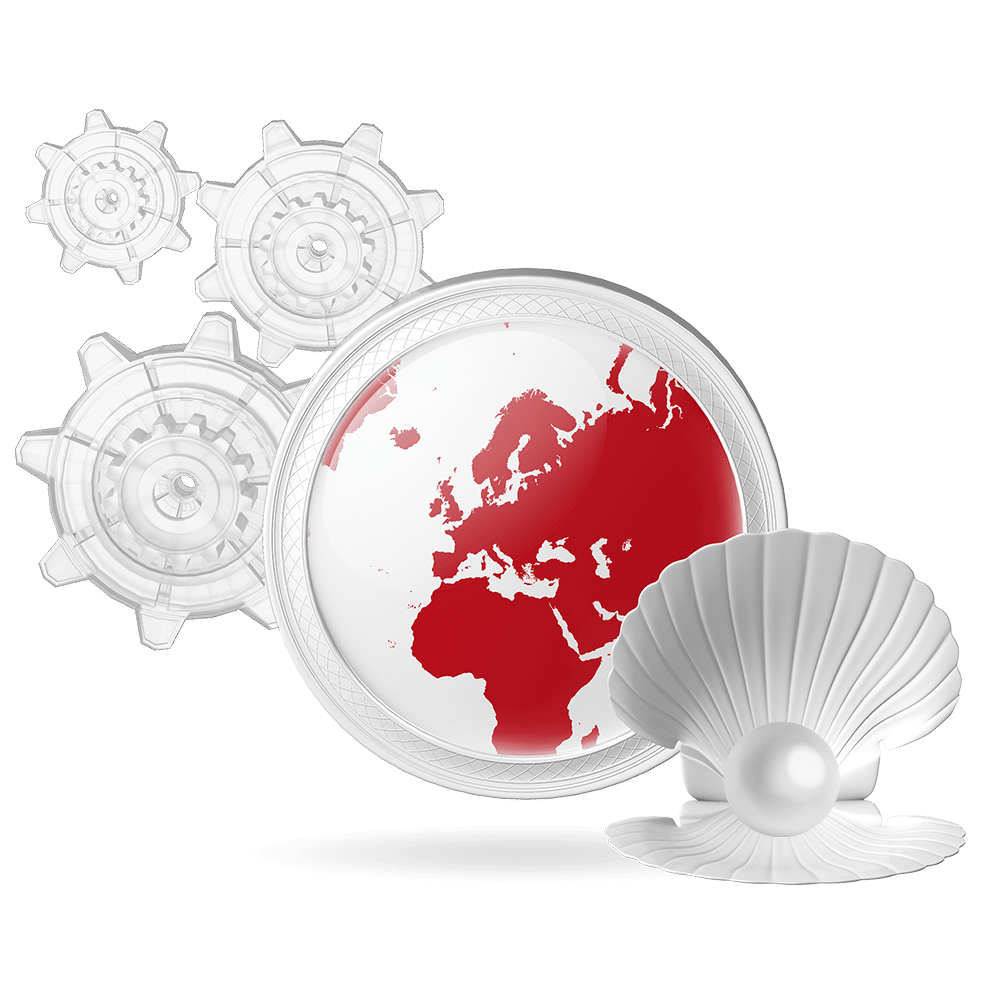Historically, there is evidence of trusts being used as far back as the Crusades, with their origins based in equity and protection. Although the reasons for using trusts may have changed over the centuries, the principles of trust, fairness and protection on which they are based still apply. It is often incorrectly assumed that trusts are the preserve of ultra-high net worth families. However, in the present era, a whole range of trust structures have developed alongside the growth in modern international financial services and changes in society. While trusts can be used to meet the objectives of wealthy international families and investors with substantial assets to manage, they have a wider reach and are far more prevalent in modern society than is often appreciated. For instance, they are used for many pension schemes, life insurance policies, corporate transactions and joint ownership of property. They are also used extensively for charities and philanthropic activities and to protect vulnerable people. Yet despite their long history and many uses, there can be a misconception that trusts are associated with secrecy and illegal activity such as tax evasion and money laundering and that individuals benefitting from them remain anonymous to prevent the authorities investigating them when required to do so.
The following factsheet provides an explanation of the recent trust developments in Jersey, their uses and how they benefit society and the regulatory scrutiny to which the trust industry is subject.
The Jersey Experience
professionals working in the finance industry
at the forefront of global finance, with a wide range of products and services
members of the Society of Trust & Estate Practitioners
The Jersey finance industry has recently achieved its 60-year anniversary. It has been at the forefront of innovation, and has effectively utilised trust structures throughout their evolution. The Island is highly regarded for its trust expertise, with over 13,600 professionals working in the finance industry, of whom around 1,120 are members of the Society of Trust & Estate Practitioners, the professional body that advises families across generations and upholds professional standards amongst its members. The Jersey membership is one of the largest in the world.
The Trusts (Jersey) Law was introduced in 1984 and continues to provide the legal framework for trusts in Jersey. This piece of legislation has only been subject to modifications on a small number of occasions, highlighting the quality of that original legislation, the robust framework in which the Island’s professionally qualified practitioners operate, and the stability and certainty that the legislation provides to settlors (those who set up the trusts), trustees (those that oversee and manage the trust and hold the trust assets) and beneficiaries (the people and organisations who ultimately benefit from the assets in the trust).
In 2000, Jersey became one of the first jurisdictions in the world to comprehensively supervise and regulate trust company business in the Island. This provides a high level of scrutiny not only of how trusts operate but also who is connected to those trusts either by establishing and contributing funds or benefitting.
Trusts' Uses and Benefits
Trusts have a very wide array of uses within the financial services industry and in society. Uses of trusts vary between countries and this factsheet will set out some of the most common uses in Jersey.
Trusts are frequently used to manage family wealth efficiently and protect that wealth for future generations. At a basic level, they can provide families with flexibility to manage their wealth in a way that can adapt to individual family members’ needs, for example allowing children to receive family wealth when they reach a certain age rather than all automatically inheriting on the death of a parent. Where there is a family business, a trust can be utilised to prevent the business having to be sold or divided upon the death of the parent.
The business can continue to be run by the trustees in order to provide a continuing income through the generations or to await an appropriate time in that market to sell the business. Trusts can also provide flexibility where family members live in different countries, perhaps with different tax regimes or political risks, and a trust can allow the assets to be managed in a way that works for those different needs.
An important factor for many families is to protect family wealth from individual members who may make poor investment decisions or lifestyle choices. This can often result in the loss of family wealth that had been generated by prudent former generations. Many families are also concerned about the impact on their adult children if they hold wealth in their own names at an early age and the associated pressures and risks this entails. A trust can enable the trustees to assess each child’s individual needs and protect the children from many of those issues. For some families there are concerns about political risk in their country of residence and trusts can be used to hold their assets somewhere, such as Jersey, with a stable political system. Many of the benefits of these types of arrangement are due to the separation of ownership of the trust assets from those who can benefit, thus limiting the ability for others to place pressure on those beneficiaries. When establishing a trust for families, tax is a consideration but rarely the main reason for choosing such a structure.
Another common use of trusts is to protect vulnerable people or those incapable of looking after themselves, for example to manage assets for children who inherit under the age of eighteen or to protect the assets of someone suffering from dementia. A trust can be established to ensure that funds are protected and used for that person’s ongoing care, perhaps after the death of that person’s spouse who would otherwise be their carer. Again, the separation of ownership of the assets from those who can benefit is an essential element of trusts which leads to this protection. Trusts can also be created to hold financial settlements received by victims of accidents to enable those assets to be used for their long-term care, particularly after the death of the parents of child victims. Such trusts can help protect victims from the risk of the funds running out, or being used inappropriately, while their care needs are ongoing.

Trusts can be ideal vehicles for supporting charities and good causes and, traditionally, many leading charities are established as trusts. In Jersey there are over 400 registered charities, many of which are trusts. In addition, there is a significant number of charitable and philanthropic trusts which are not registered charities. For example, many educational bursary programmes are run through trusts and high net worth families often establish a trust through which the family can use a portion of their wealth to support worthy causes and ringfence this from the commercial and family risks that may affect the remainder of their assets.
Many people will be beneficiaries of trusts through their wide use for pension provision, and retirement and share option planning. Such plans and incentives can increase productivity of businesses and retirement planning may lead to a decrease of dependence on government provision. Joint ownership of assets is often through the use of trusts. Trusts are also key for many corporate and commercial planning needs and transactions, where they are valued particularly for their flexibility and separation of ownership, so enabling economic development.
In more recent times, when there has been a greater emphasis on supporting environmental and societal concerns, such as climate change and demands for greener solutions, trusts have once again been shown to be one of the ideal fiduciary vehicles for families and other investors wishing to address these matters in their investment decisions. Investment strategies can be tailored to take into account the differing wishes of beneficiaries in relation to ESG investments or a trust can be established specifically for such purposes. Additionally, the flexibility of trusts can allow investment priorities to be varied over time as ESG concerns and investment products also adapt.
With such a broad application within financial services and society, it is evident that the benefits of trusts for individuals, families and wider society are equally wide ranging. Many of the reasons for using trusts resolve needs in society such as protection of the vulnerable, provision in retirement and family succession, while the more commercial uses can increase productivity and economic output and allow businesses to adapt and develop.
The contribution of trusts to the economic wellbeing of the world is substantial. For Jersey alone, recent data collected for a research paper* showed that Jersey’s trusts and asset holding vehicles sector supported an average £126 billion of global economic output annually via the capital channelled through international value chains across the period analysed (2017 – 2020). This is equivalent to 0.20% of world GDP, a similar output to the total direct GDP contribution of Hungary in 2020.
Some Example Case Studies Below

“The client relocated to the UK to work for a pioneering sustainability firm in which he received equity/stock options. The firm was later acquired by a PE firm and the client sold their equity post-acquisition. On receiving UK tax advice, the client worked with professional trustees in Jersey to establish a Jersey trust with the proceeds. The trust was divided into three separate funds to be managed by independent investment managers with one fund to benefit the client’s spouse, the second to benefit their children and the third to invest in ESG-related projects and make charitable donations to registered charities promoting ESG. This trust structure and solution from the professional trustees gave comfort to the client’s family that both their future needs would be met, and the trust satisfied the client’s strategic decision to invest and contribute to other ESG projects.”

“Mr and Mrs X had a severely disabled child who would require constant nursing care throughout their life. Mrs X was currently the main carer for the child, and Mr and Mrs X were able to fund any other care needs during their lives. There were three other children of the family. Mr and Mrs X established a trust to come into effect upon their death whereby a significant proportion of their wealth would be set aside to provide certainty for the child’s care needs going forwards but also Mr and Mrs X did not wish their other children to have to try and support their sibling in the future which could put financial pressures on them. The trustees would be the siblings together with the family’s lawyer who could make decisions if the siblings did not agree. The family all wished to be involved in the care of their much-loved sibling but were reassured that future funds would not be an issue and those siblings would not perhaps have to try and balance their own children’s needs with those of their disabled sibling.”

“Jersey lawyers advised an ultra-high net worth individual who wished to ensure that future generations of his family were protected financially but use the majority of his wealth for philanthropic educational purposes. The individual had clear views about the investment of the funds and also wished his family to become involved in the philanthropic aspects of the trust going forwards. A trust structure allowed family members to have differing levels of involvement according to their interests and also take into account the fact that the family were based around the world with different tax needs and business interests. The trust terms could also provide comfort to the individual that his wishes would be respected. A trust was an ideal structure to deal with these two aspects.”
Confidentiality and Regulation
Individuals who establish and benefit from trusts can expect their financial affairs will remain confidential in the same way as for other financial matters. However, this does not mean that trust structures sit outside the regulatory net, are anonymous or evade payment of tax.
Jersey’s legislation requires trust firms that operate from Jersey to be regulated and licensed and provide information to the authorities, including for tax reporting purposes. Professional trust and company service providers are highly regulated and supervised by the Jersey Financial Services Commission and trustees are required to maintain full and accurate information on the source of the assets, beneficiaries and accounts for each trust and to have high levels of corporate governance. The regulator has investigative powers to ensure that trust firms comply with legislation and regulations, and undertake regular reviews of individual firms to ensure high standards are maintained. In fact, Jersey has been acknowledged as a leading force in meeting greater demands for transparency in financial services structures.**
Furthermore, global initiatives such as the concerted moves for jurisdictions to maintain a register of beneficial owners for companies and various other vehicles, the OECD’s Common Reporting Standard (CRS), the global standard in the automatic exchange of information and the EU’s Money Laundering Directives, are all globally enforced measures which help to safeguard trusts, as well as other financial vehicles, against misuse.
For example, to comply with the CRS, trust businesses in Jersey are obliged to report certain account information on specified persons to the Jersey tax authorities who share that data with other tax authorities. Included in that category are settlors living in CRS compliant locations and beneficiaries.
Therefore, it is clear that trusts are not secret, and this is a misrepresentation. Individuals’ personal information is kept confidential from the public, as for other financial services, but the appropriate authorities have access to information about trusts and they are highly regulated. Trusts in Jersey are not a mechanism to hide money or to evade paying properly due tax.
*Jersey’s Contribution to Global Value Chains – A Cebr report for Jersey Finance November 2021.
**In a Council of Europe MONEYVAL assessment in 2016, they concluded that ‘Jersey’s combination of a central register of the ultimate beneficial
ownership with a high level of vetting/evaluation not found elsewhere and regulation of trust and company service providers of a standard found in
few other jurisdictions, has been widely recognised by international organisations and individual jurisdictions as placing Jersey in a leading position
in meeting the standard of beneficial ownership transparency.’
Summary
- Trusts have evolved alongside the modern financial services industry and the development of society in order to provide the ability to meet a wide range of objectives which are positive for settlors and beneficiaries, and frequently for wider societal and economic considerations. They are associated with many lifestyle and business planning decisions that prove to be triggers for productivity and economic growth in the world, such as cross border transactions, pension provision and family business succession planning alongside many philanthropic and charitable endeavours and protection of vulnerable people.
- Firms that operate trust businesses in Jersey require a licence and are subject to significant supervision by regulators together with the need to comply with many stringent global standards, particularly relating to disclosure and transparency. Trusts are confidential, reputable and long-established financial planning vehicles, but they are within the regulatory and tax net, and face scrutiny as part of wider international moves for greater transparency for such structures.
- While trusts can be used for asset protection and succession planning by high net worth families, they are also far more widely used than most people appreciate. For example, they are utilised to facilitate the administration of global pension funds and are an effective structuring tool in support of charitable and philanthropic organisations as well as protection of many vulnerable individuals. Trusts are used extensively in many countries around the world, including the United Kingdom, Australia and the United States, for a variety of uses and are not just the preserve of international finance centres. Overall, trusts perform a vital function to serve the social and collective good.
